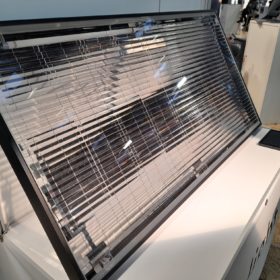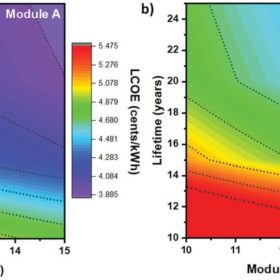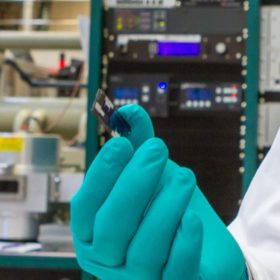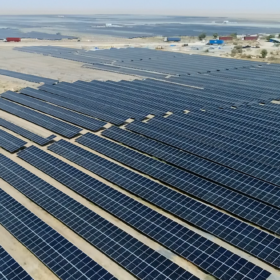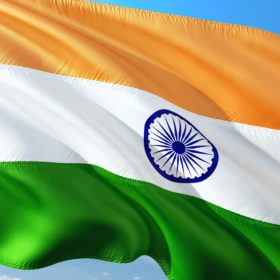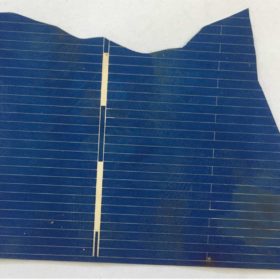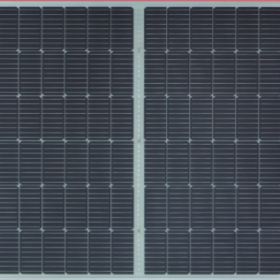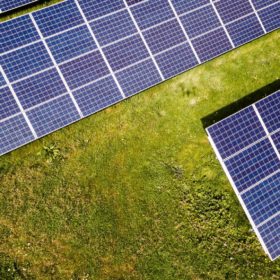Insolight unveils 20.1%-efficient translucent photovoltaic panel for agrivoltaics
Insolight has developed a translucent monocrystalline solar panel with a nominal power of 106 W and a power conversion efficiency of 20.1%. The solar cells are covered with protective glass and optical lenses to concentrate and direct sunlight onto them at around 100 times the intensity of standard solar glass.
210mm wafer achieves highest energy yield, finds Trina Solar
Trina Solar has found that its Vertex modules, based on the 210mm wafer, achieve an energy yield up to 1.6% higher than rival products based on the smaller 182mm wafer format. The company conducted outdoor testing at two separate sites with varying climates, finding that products based on the larger format have a particular advantage in low-irradiance environments.
Analyzing the opportunity for perovskite solar module production in India
Scientists in India conducted a techno-economic analysis for a 100 MW production line for carbon-electrode perovskite solar modules, located in Himachal Pradesh, India. The analysis concludes that, even at the smaller scale, this emerging technology could achieve cost levels comparable with today’s silicon solar products.
Solliance hits 29.2% efficiency on perovskite/silicon tandem solar cell
The Solliance consortium has built a solar cell in a four-terminal tandem configuration that combines a 17.8%-efficient highly near-infrared transparent perovskite cell with a prototype of an 11.4%-efficient c-Si interdigitated back contact silicon heterojunction cell developed by Panasonic.
China power crisis hits Indian solar projects
After the ravages of Covid-19, electricity shortages in China have now raised costs for its solar manufacturers, with knock-on effects for developers in India too, again highlighting the dangers of relying on a single solar supply chain.
Investors bet big on renewables while solar takes on coal
Foreign direct investment’s role in bringing in finance, superior technology and other resources is undoubtedly a critical one. The Indian government has tried to create a conducive environment for enabling flow of foreign investments into the solar energy sector in the country, but the norms need to be eased further to really push the industry to its maximum growth potential.
New tech to recover pure silicon from end-of-life solar cells
An Indian research group has used three different chemicals instead of commonly used hydrofluoric acid to separate silicon from the cell. The technique is claimed to be able to deliver recycled silicon with a purity of up to 99.9984%.
Sunman unveils 430 W glass free solar module
The new product has a power conversion efficiency of up to 19.3% and a weight of 11.2 kg. The module is produced with glass fiber reinforced plastic, which the manufacturer says reduces light reflection and opens up new assembly options.
Module and shipping cost inflation could cost the world 50 GW of solar next year
The input costs of the two biggest contributors to solar plant development expense have gone through the roof since the world began to come out of Covid-19 lockdowns, to leave project developers with some difficult choices.
Tender launched for 50 GWh battery cell output with subsidy support
Global bids are invited to set up giga-scale advanced-chemistry battery cell manufacturing units in India under the government’s production-linked incentive scheme. To be eligible for the government subsidy, the bidder would have to commit to setting up a minimum of 5 GWh capacity. Bidding is open until December 31.
